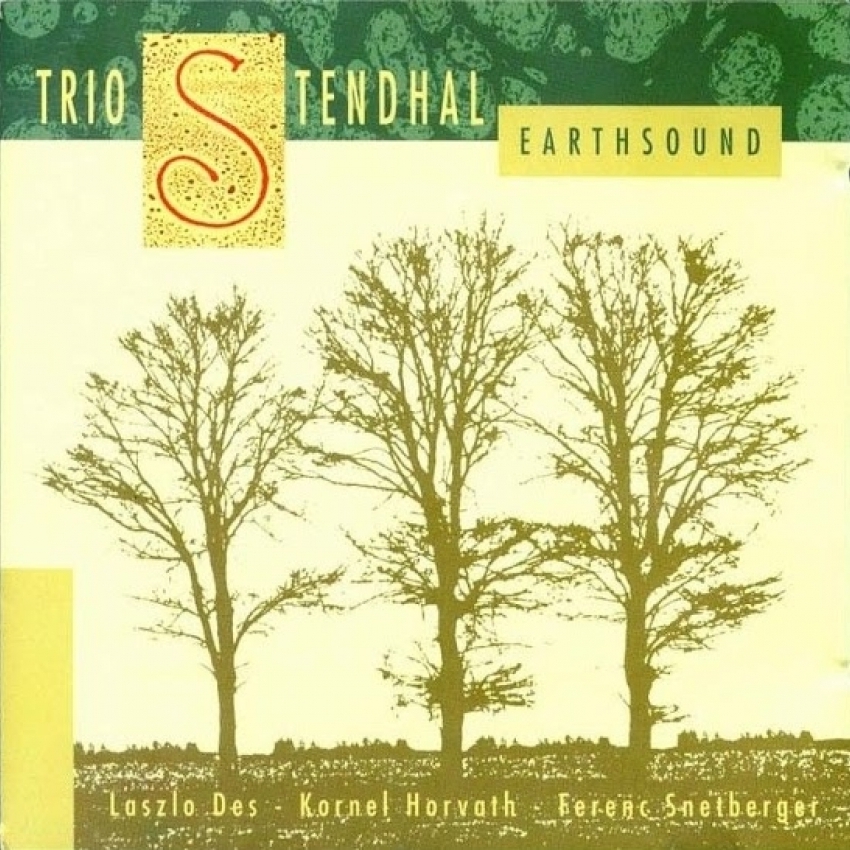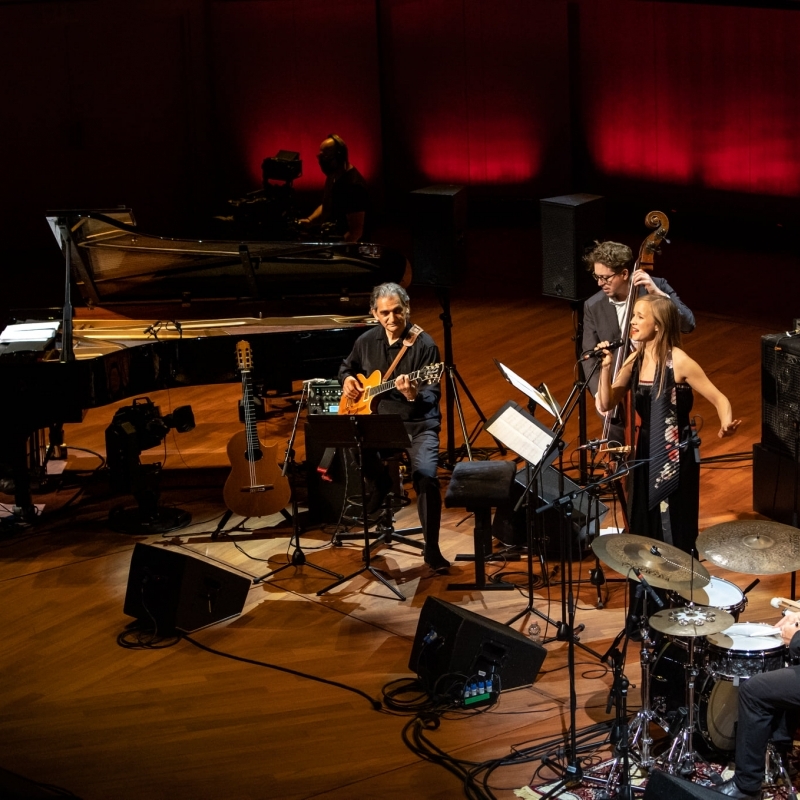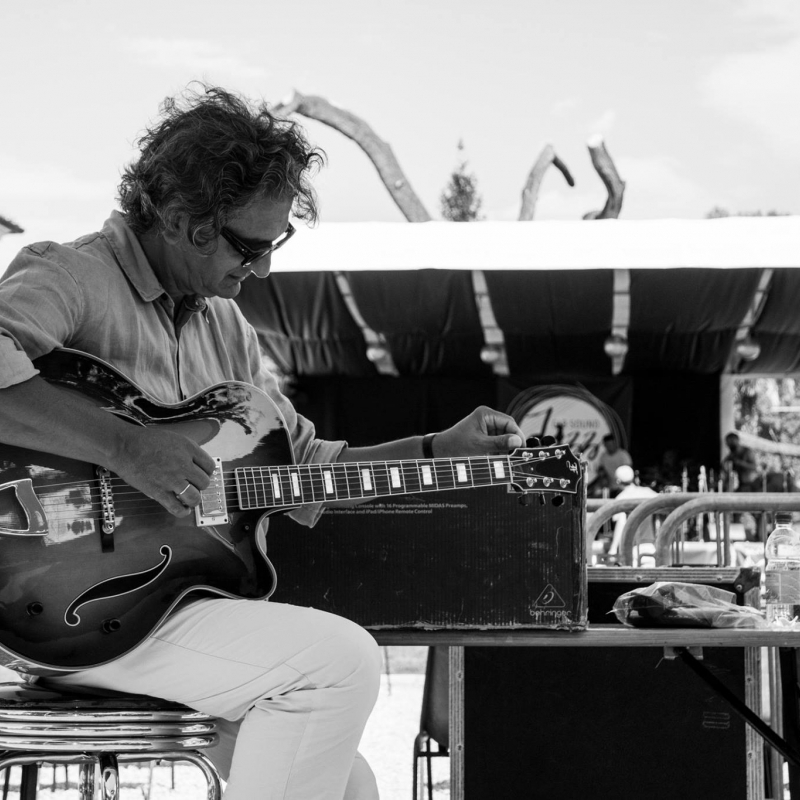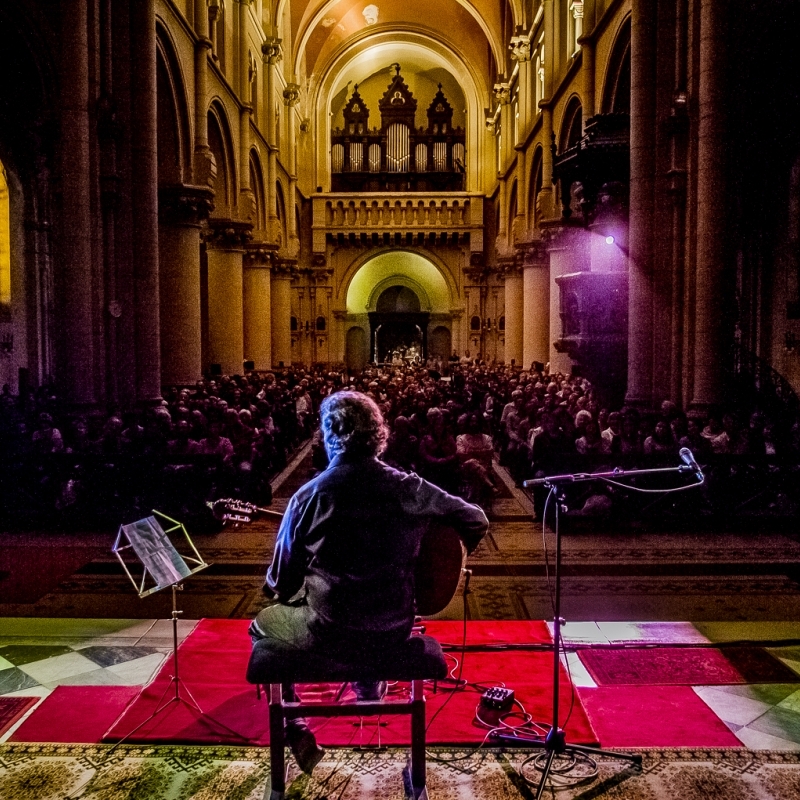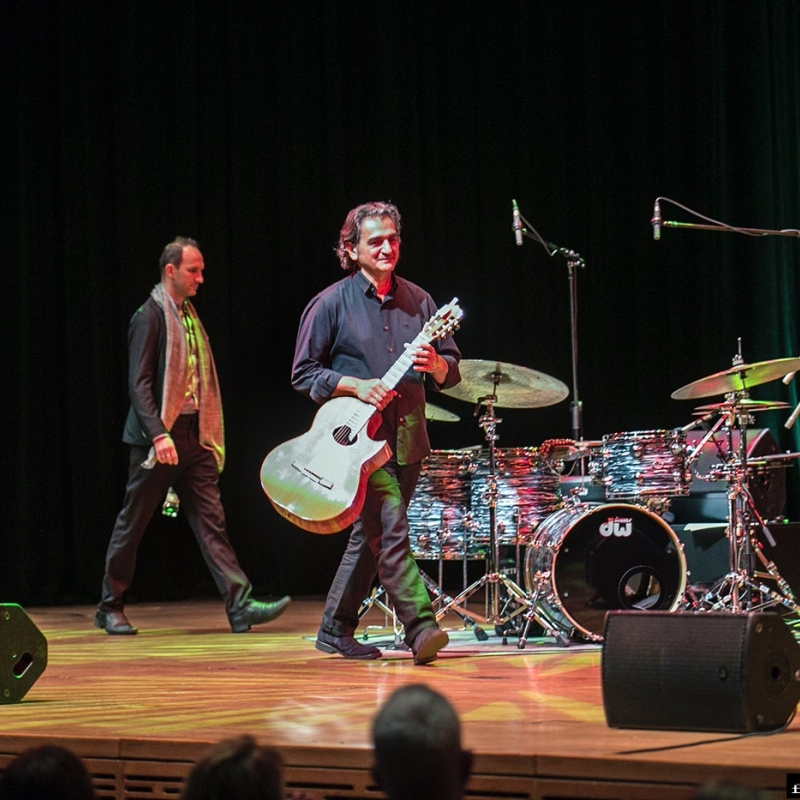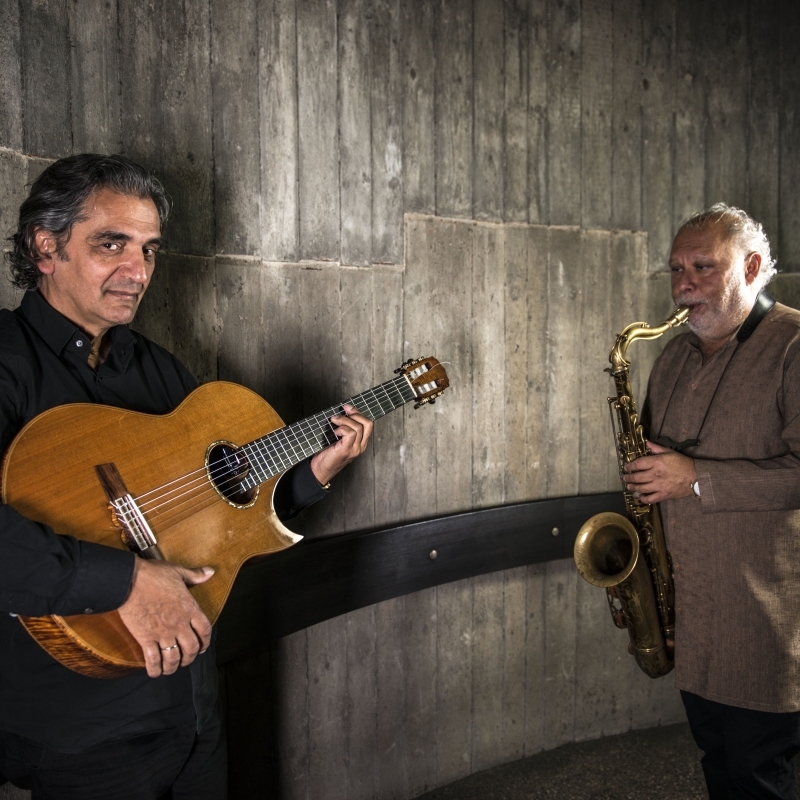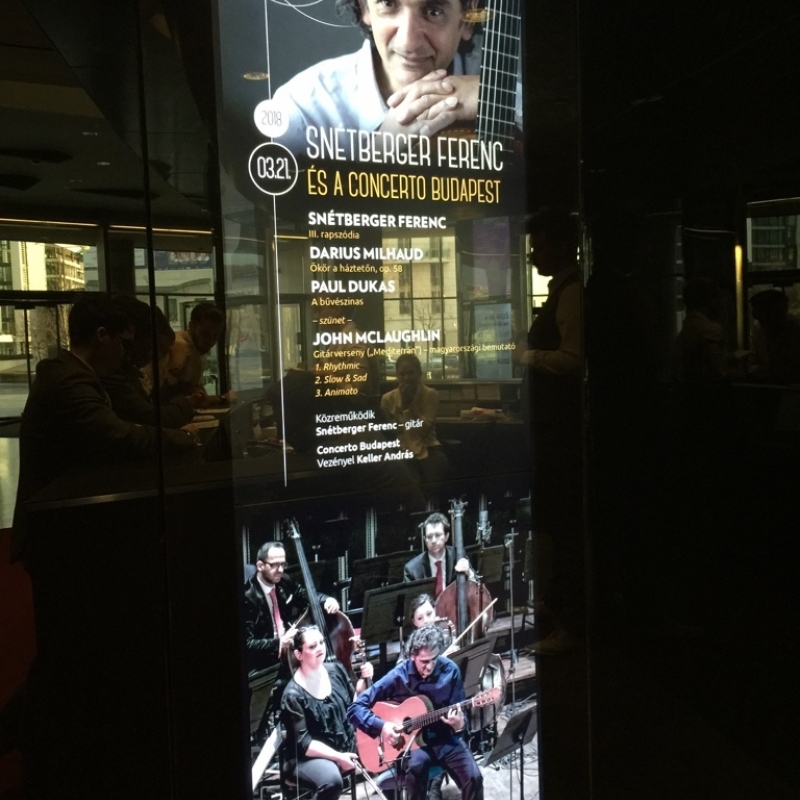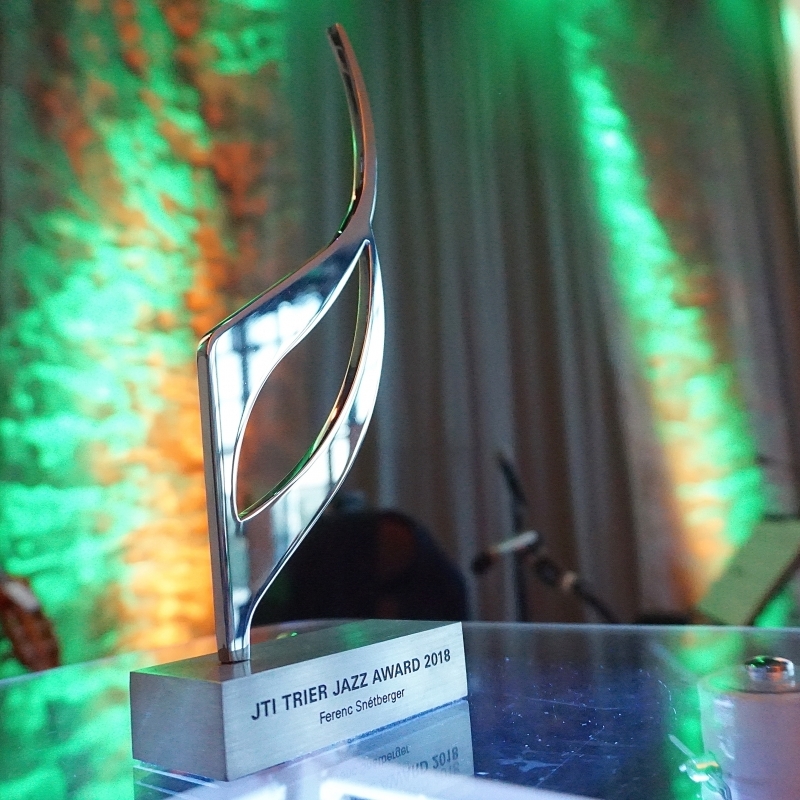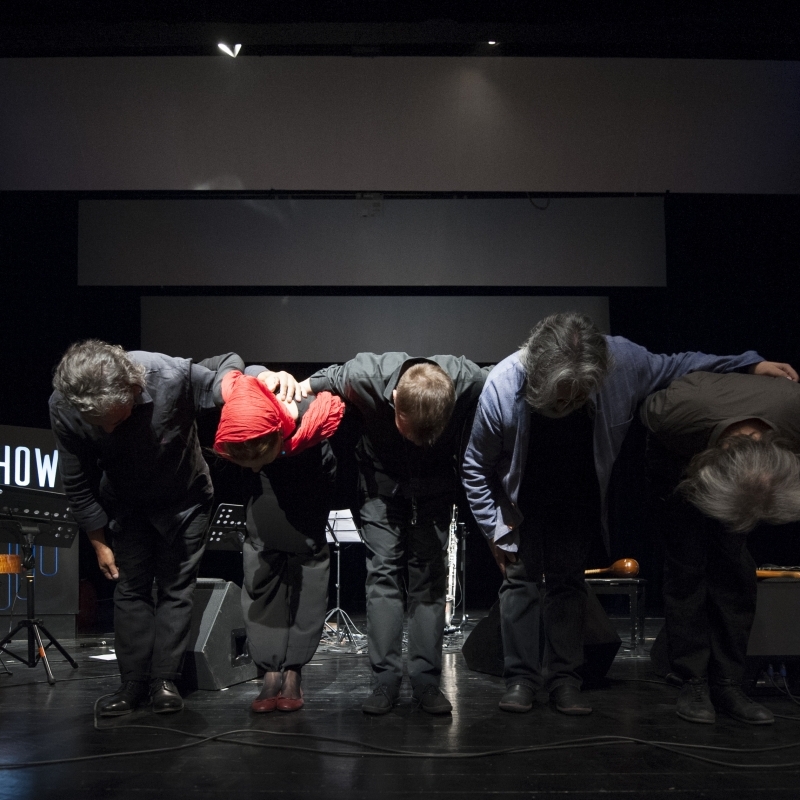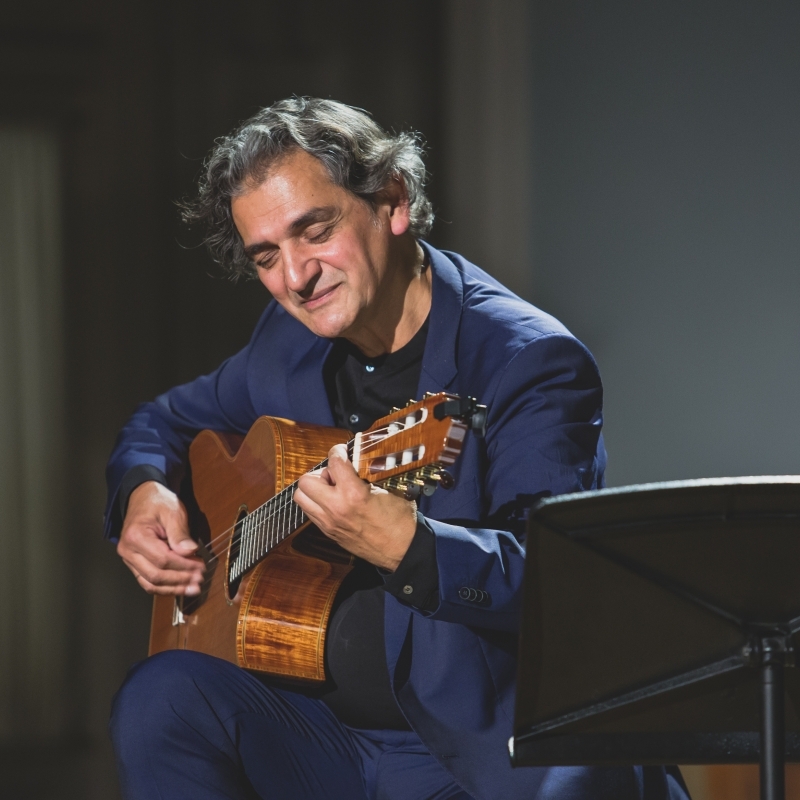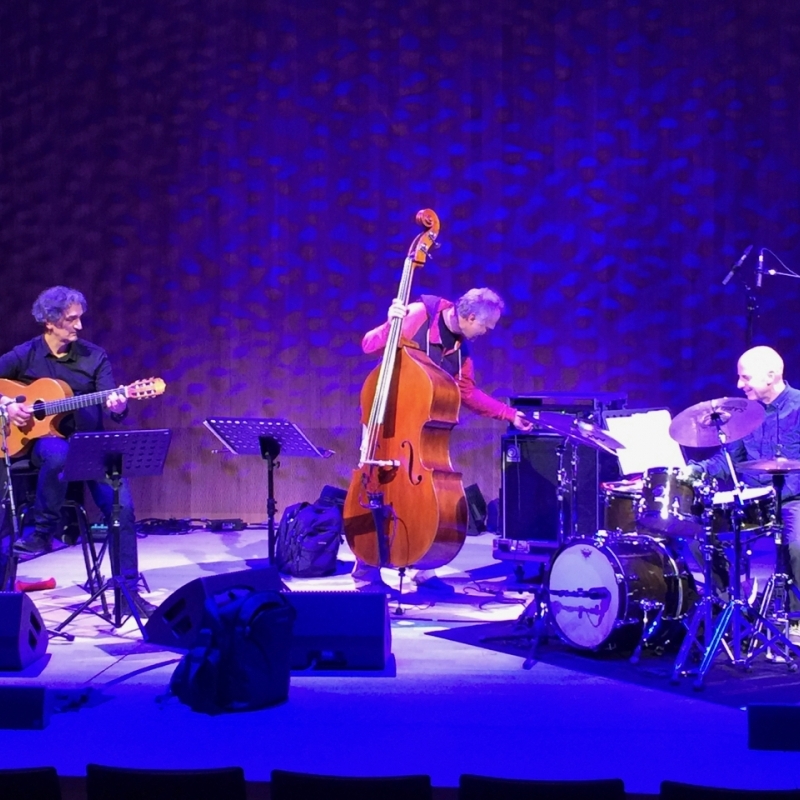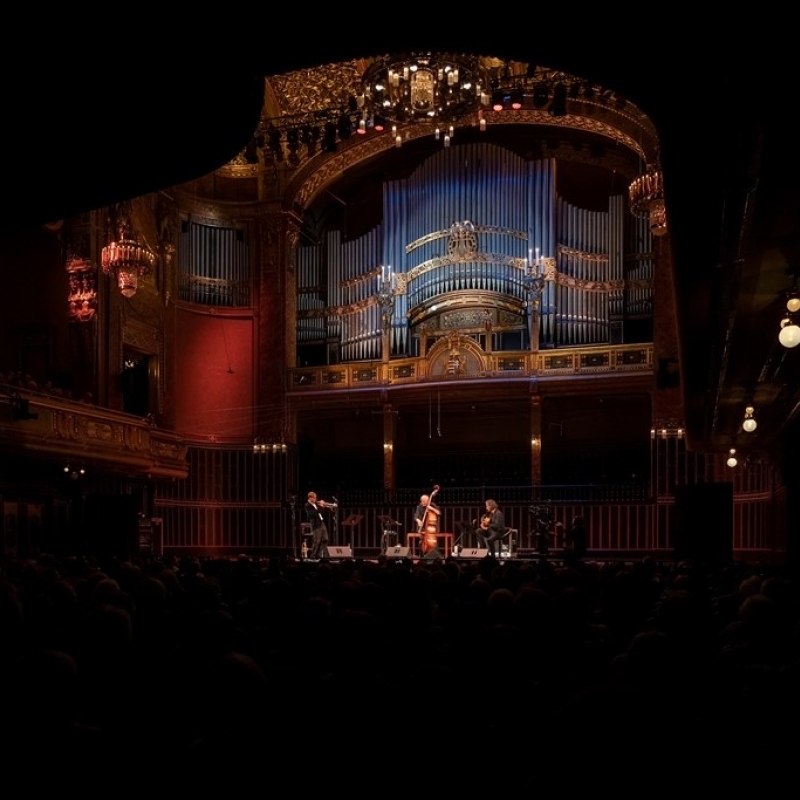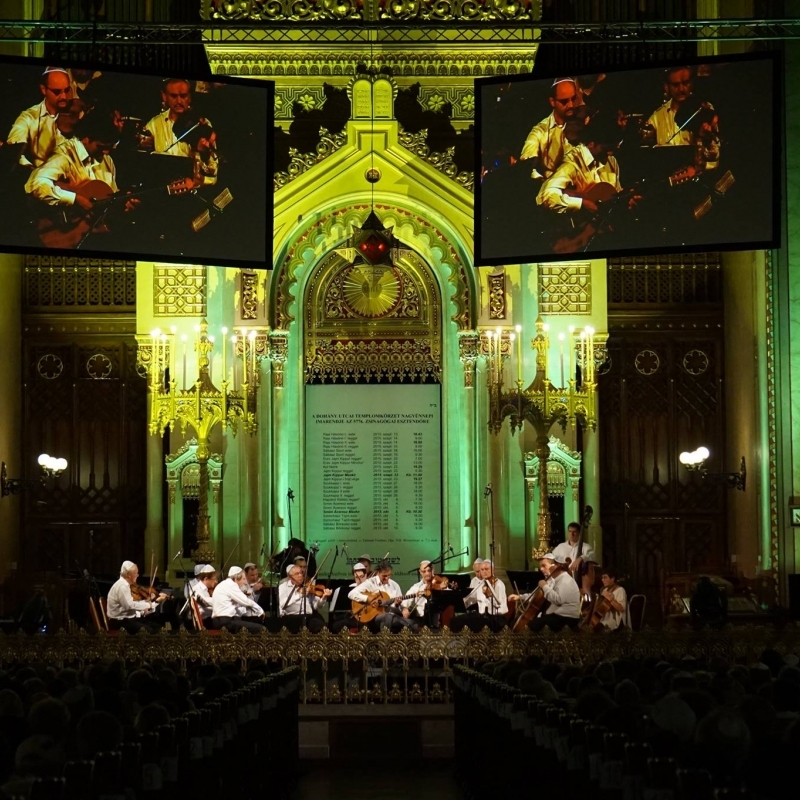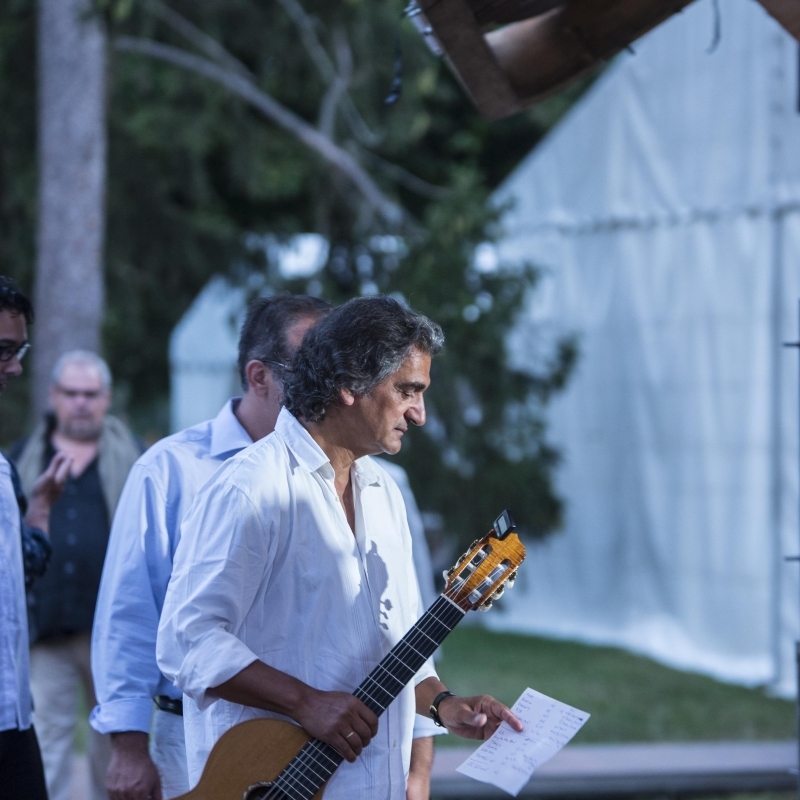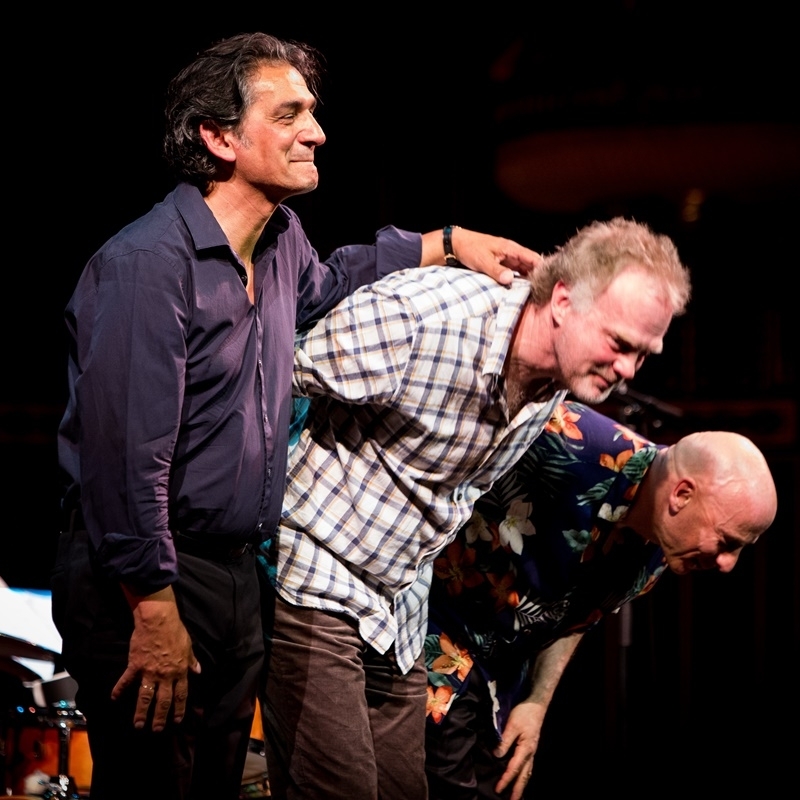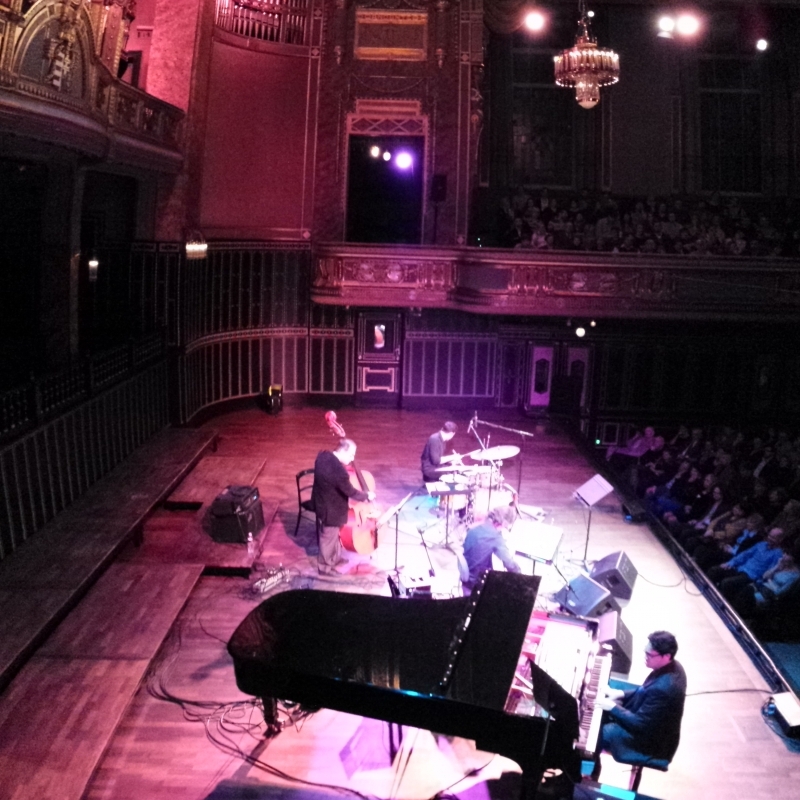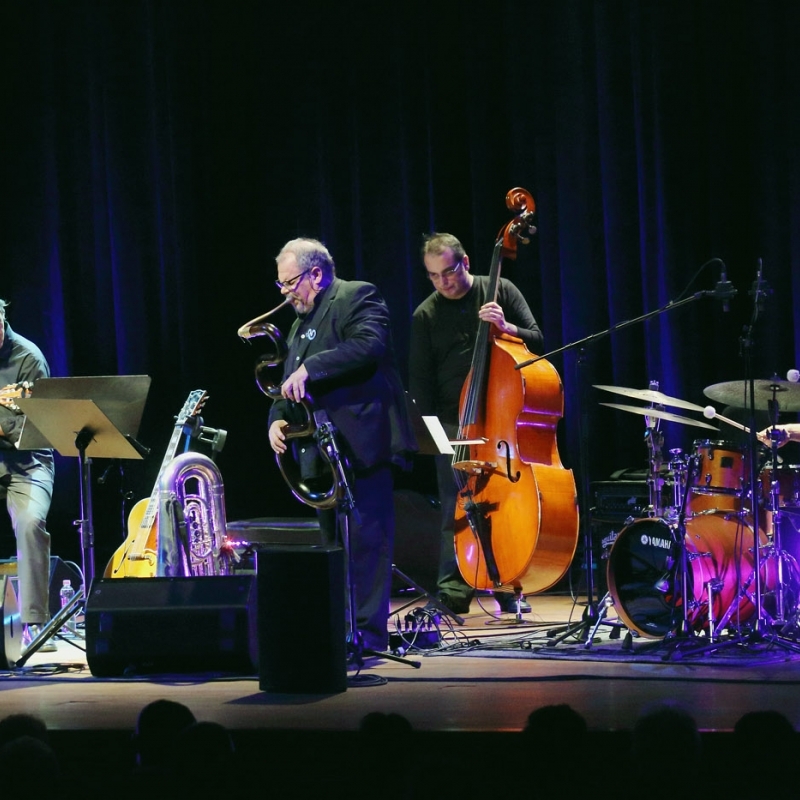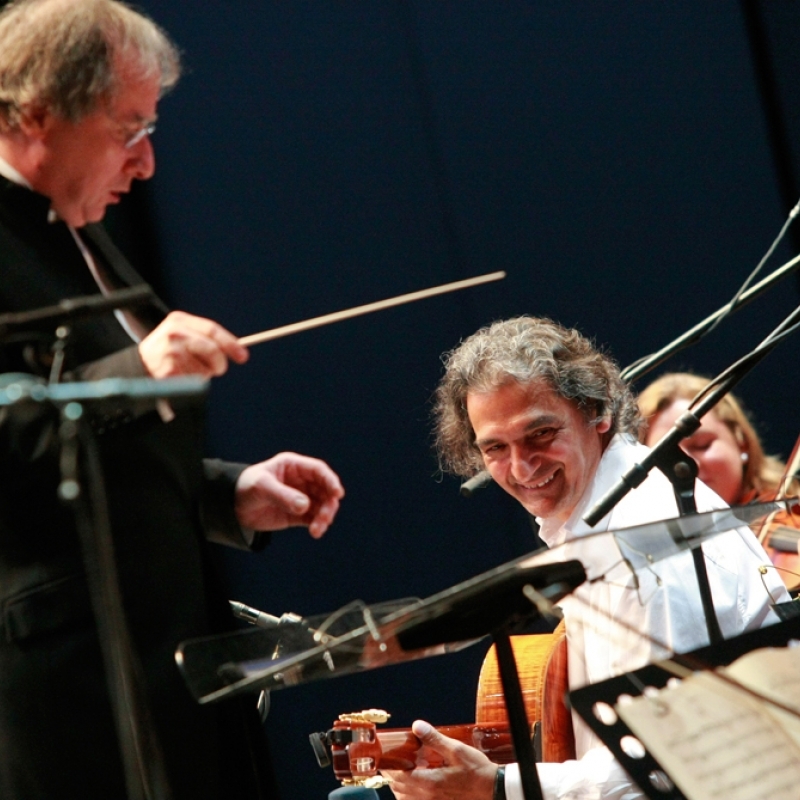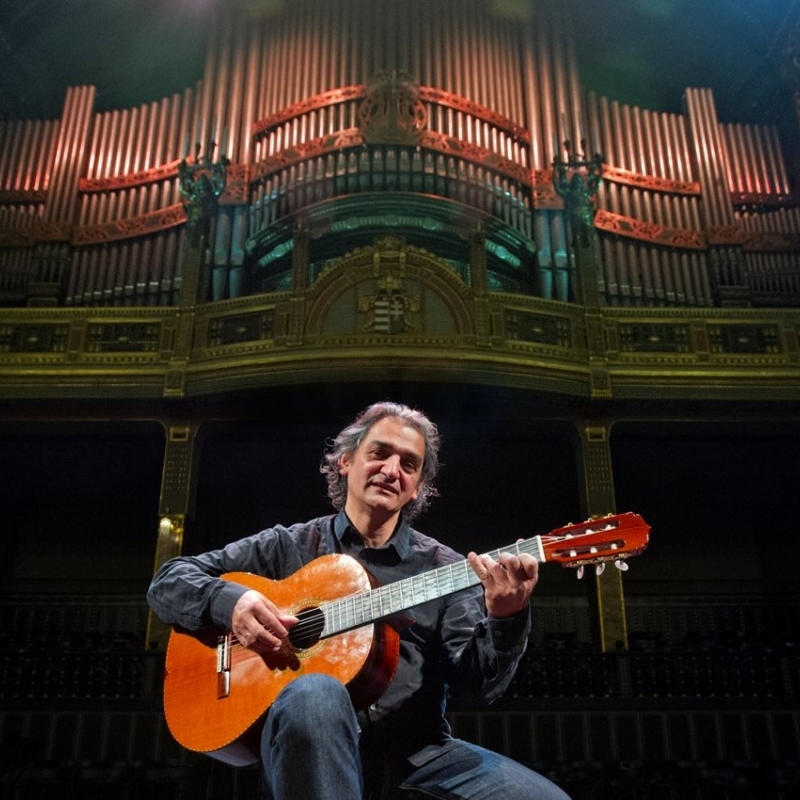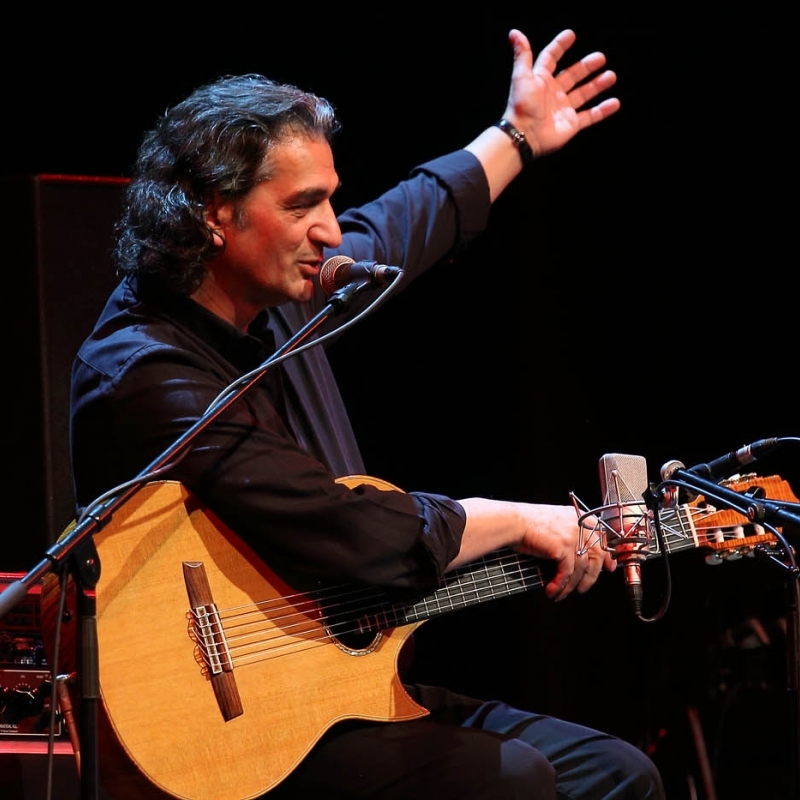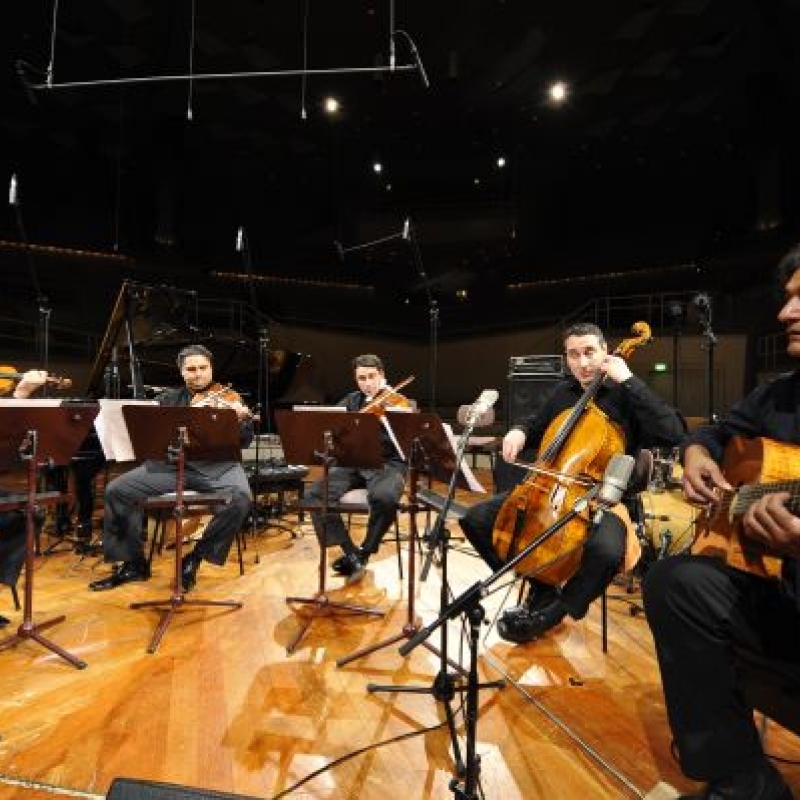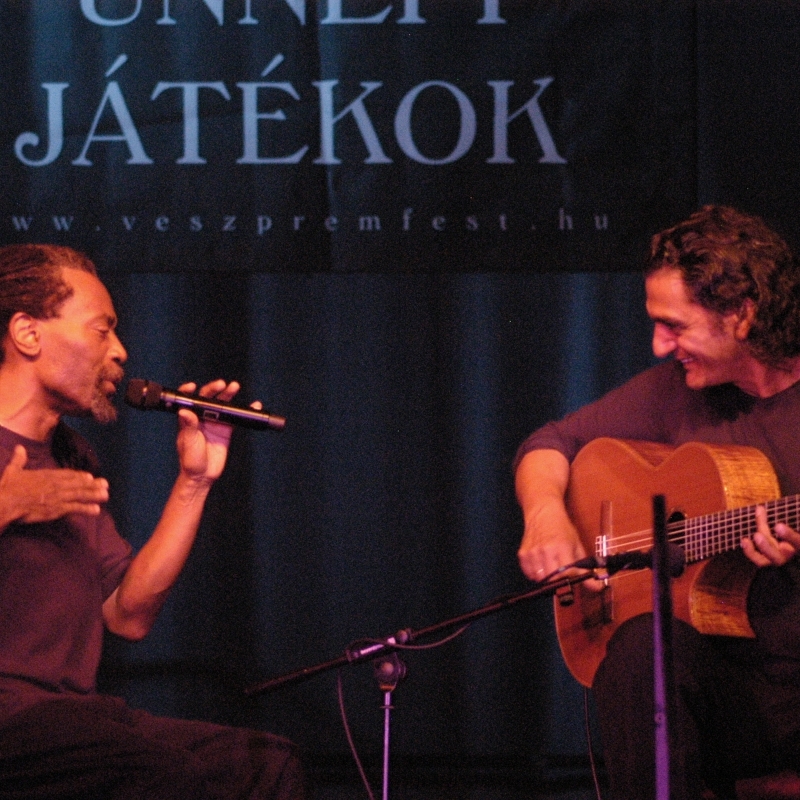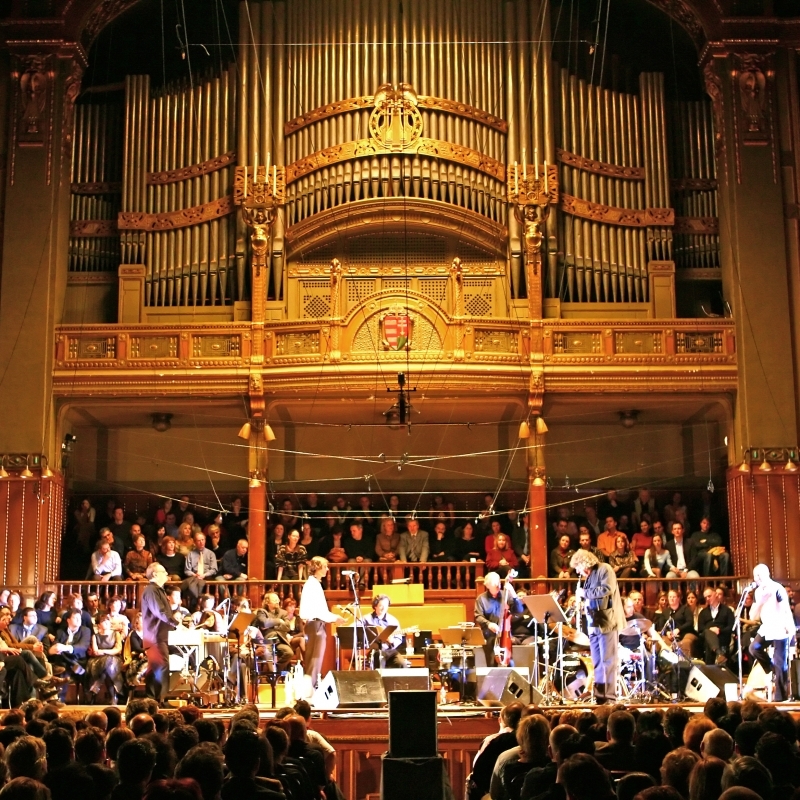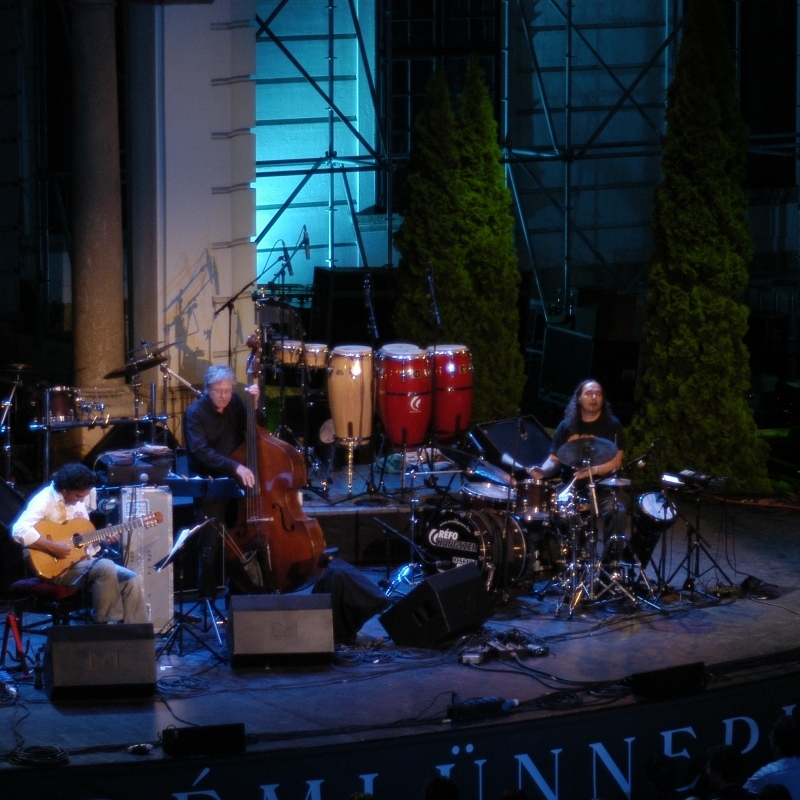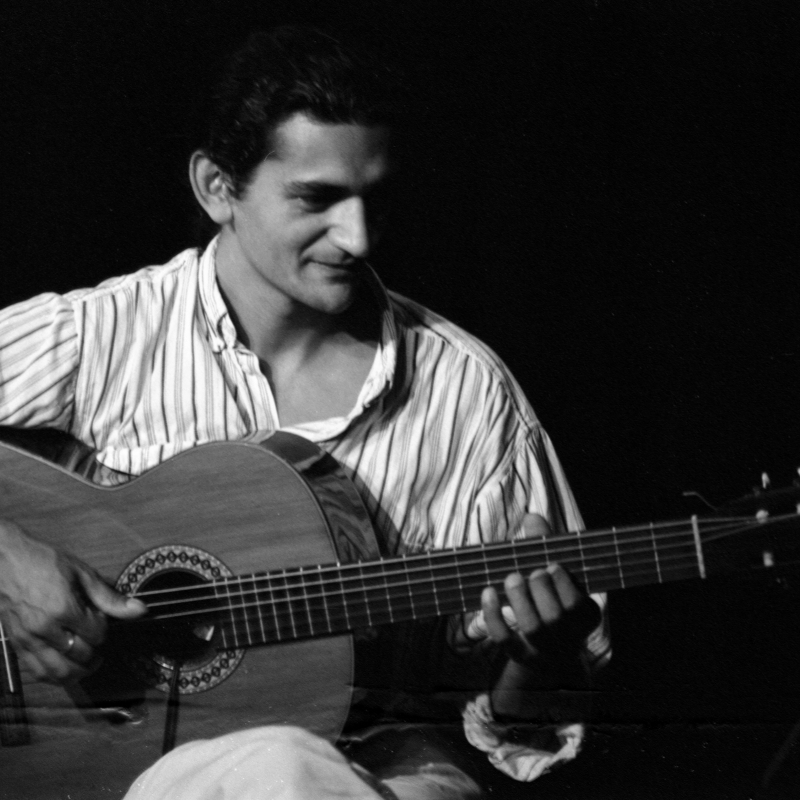Hallgató | Snétberger & Keller Quartett | 2021
UK
A terrific collaboration between veteran Hungarian guitarist Ferenc Snétberger and András Keller’s string quartet that takes us through
six centuries of music – from sweet settings of John Dowland’s compositions for lute to modernist classics by Shostakovich and Samuel Barber,
alongside some darkly elegant pieces by Snétberger himself.
John Lewis, Guardian
France
De la nostalgie diffuse à la déploration accentuée, chaque partition semble investir un degré spécifique de l’affliction […] l’expression instrumentale oscille entre la légèreté de la guitare (celle, très instinctive, de Ferenc Snétberger) et la gravité du quatuor à cordes (le polyvalent Quator Keller). Les principales contributions du guitariste jazz brassent trés large mais bénéficient de solos inspirés. Elles pȃtissent du voisinage de chefs-d’œuvre du XXe siècle, le célèbre ‘8e Quatuor à cordes’, de Dimitri Chostakovitch, qui alterne désolations funestes et danses macabres, et le non moins connu ‘Adagio’, de Samuel Barber, élégie à vocation hymnique.
Pierre Gervasoni, Le Monde
Le fabuleux guitarist Ferenc Snétberger et le Keller Quartet nous ouvrent les portes de l’Academie Liszt de Budapest le temps d’un programme d’une magistrale splendeur. On y apprécie Shostakovitch avec l’émouvant ‘String Quartet n° 8’ dédie aux victims de guerre et un déchirant ‘Adagio’ de Samuel Barber. Violons, violoncelle et guitar se retrouvent sur deux pieces de John Dowland et les compositions de Ferenc Snétberger, don’t le Concerto ‘In Memory of my People’ qu’il d´die à ses ancêtres manouches et Roms. […] l’heute est à la meditation mélancolique, bercée de cordes plus sensibles que jamais.
Thierry Boillot, L’Alsace
US
Recorded live in the Grand Hall of Budapest’s Liszt Academy, ‘Hallgató’ chronicles an ongoing collaboration between guitarist Ferenc Snétberger and the Keller Quartett. The concert’s program is one of memory and mourning, referencing the Holocaust and repression in Russia and Eastern Europe under Stalin. For the guitarist, whose mother was Roma and father Sinti, a sense of collective mourning, alongside a spirit of resistance, are closely intertwined aspects of his biography and musical resources. The Keller Quartett are fellow Hungarians and prove to be estimable collaborators. […] ‘Hallgató’ is a bit hard to translate, and it has different meanings in Hungarian and Roma, but it connotes a sense of listening. This release certainly invites listening, preferably many times, to savor its exhortation to remember.
Christian Carey, Sequenza 21
apple music has „Hallgató“ as one of the 10 must hears Classical Albums of the month declared
„An album of palpable sincerity and intense emotion.“
apple music editors notes, March 21
The music of Snétberger‘s In Memory of My People is infused with the spirit of the composer‘s own Romani background. Snétberger’s intensely emotional composition depicts in three movements the harrowing, moving and ultimately inspiring journey of the Roma people, whose valiant struggles, heroic survival, and noble triumph throughout centuries of persecution are relived in music at times blunt and fretful, at others profoundly sad , and all throughout melodically tonal, harmonically inventive, and open to the asperities of atonality without fully embracing that sonic world. Above all this is music that moves the listener as it reminds one of the vicissitudes of Snétberger’s paternal and maternal ancestors.(...)In Ferenc Snétberger’s artistry there is a strongly compelling quality – call it Romani melancholy if one must – that touches deeply the hearts of listeners. If the reader doubts my words just sit and listen to Your Smile, Snétberger’s musical musing on love.
Germany
Es ist der Gitarrist Ferenc Snétberger, Sohn einer Romni und eines Sinto, der ein ungewöhnliches Programm mit einer in sich schon heterogenen Eigenkomposition eröffnet, in der ihm alsbald ein Streichquartett – das ungarische Keller Quartett, zurzeit bestehend aus András Keller, Zsófia Környei, Gabor Homoki und László Fenyő – und der Kontrabassist Gyula Lázár beispringen. Das für das kleine Ensemble transkribierte Concerto für Gitarre und Orchester ‘In Memory of My People’ ist eine kuriose Melange aus Elementen des Impressionismus, des Jazz und der Folklore in drei Sätzen. […] Die Zusammenstellung des Konzerts geht zurück in der Musikgeschichte, um dann schrittweise wieder zur Gegenwart zurück zu kehren. […] Der Hörer (!) hat mit dieser Aufnahme ein ungetrübtes, wenngleich elegisches Vergnügen.
Thomas Rothschild, Kultura extra
Der Geist des ‘Memory’-Konzertes durchweht das ganze Programm, Relfektionen einer Melancholie, die an die unerträgliche Schönheit von Celan-Gedichten erinnern kann. Es ist ein großes Threnos, ein Memento aus Klage und Anklage, aus Aufstand und Widerstand, aus Blumen in Gewehrläufen, aus Heimatlosigkeit und Heimatsuche, und dem Leiden unterdrückter Minderheiten. Und Ferenc Snétbergers Gitarre erspielt den Trost zu alledem.
Alexander Schmitz, Jazzpodium
Italy
Il CD fornisce un ideale complemento ai due lavori precedenti del chitarrista per letichetta, documentandone esclusivamente laspetto classico (e come tale viene pubblicato nella New Series), mentre Titok era un lavoro per trio jazz e In Concert un recital solistico che riassume tutte le influenze che hanno contribuito al suo sviluppo come strumentista e compositore in una sintesi di diversi generi musicali. Va ricordato anche il Keller Quartett, coprotagonista dellalbum, che si conferma una formazione da camera di altissimo livello, degna erede della ricchissima tradizione musicale ungherese.
All About Jazz, Mario Calvitti | 2021. 02.18
Hungary
...A kompozíciós zene kötöttsége és a rögtönzés szabadsága harmonikus egységbe olvad Snétberger Ferenc zenéjében; ez az a minőség, amelynek alapján a megrendítő hanglemezt az ECM igényes kiadványai között is különleges hely illeti meg.
Magyar Nemzet, Turi Gábor
A jazznek a fényes oldala az improvizáció és a szabadság, a sötét oldala a laikusok számára az érthetetlenség és öncélúság.
A klasszikus zene fényes oldala a hagyományok tisztelete, a régi muzsikusok esszenciális dallamainak tovább őrzése, sötét oldala a dogmatikus, szabadságot nem ismerő szellemiség.
Mi történne, ha valaki képes lenne ennek a két irányzatnak a fényes oldalát elhozni és egybe gyúrni? Snétberger Ferenc zenéjében mindez egyesül. Ő a híd a klasszikus és könnyűzene (jazz) között. Hiszen olyan színvonalon improvizál, hogy nincsen párja, mélyrehatóan ismeri a klasszikus zenét, az improvizációja mindig közérthető és magával ragadó. Mind klasszikus gitárosoknak, mind jazz zenészeknek abszolút példakép. Iskolájában klasszikus zenészeket improvizációra ösztönöz és jazz zenészeket a klasszikus zenék megismerésére inspirál. Ez olyan kulturális művelet, hogy nehéz lenne kifejezni ennek a fontosságát.
Nincsenek meg benne a jazz zenészekre jellemző allűrök. Csak a mérhetetlen alázat és szerénység, ami sugárzik a lényéből, és a zenéjéből..
Snétberger Ferenc és a Keller Quartet-Quintet produkciója tökéletes bizonyítéka annak, hogy a különböző világokból érkező muzsikusok milyen jól megtudják találni a közös nevezőt. A nyitottság a jazz egyik fő jellemzője, és ha a klasszikus zene képviselői is hajlandóak kitárni a kapukat, olyan zseniális felvételek születhetnek, mint a „Hallgató”.
Egyből felismerhető, szenzitív, mégis erővel-energiával teli gitározás, minden hang szívvel-lélekkel pengetve, meleg és telt hangszínt csalva elő a hangszerből, mely a Mennyországba enged betekintést a Hallgatónak. Ezt jelenti számomra Snétberger Ferenc és művészete.
A „Hallgató” kihagyhatatlan album, szóljon és szóljon!
Titok with Anders Jormin and Joey Baron | 2017
UK and US reviewers on the trio album Titok
Titok is the latest offering from ECM. And it is remarkable in the wholeness of ist realization. ...
He wrote all 13 songs here, and they reflect diverse influences: Roma music („Alom“); Europaen classical („Renaissance“); Latin („Orange Tango“); jazz (most of the rest). But these cultural references are almost incidental to Snétberger´s encompassing aestethic.
Titok is warm, elegant music, unassuming inits romaticism, firm in ist substance, organic in ist natural, unhurried flow. In seperable from allue of this album is ECM´s excellent recorded sound. The sonic glow of Snétberger´s acoustic nylon-string guitar is as sensual as a caress.
Five of the 13 pieces are in-studio improvisations. They sound almost a jewel-like and complete as longstanding Snétberger compositions like „Kék Kerék“ wich is a quietly dramatic unfolding of inevitable melody.
The rythm section here assures that Snétberger´s light touch will be applied in a context of intesity. Bassist Anders Jormin and drummer Joey Baron have appeared on many ECM recordings but never together.. baron´s brushes are like flickering fire. Jormin is a special atmospheric recource, offering haunting pizzicato on „Álom“, lingering arco on „Leolo“ and resonat blends with Snétberger´s guitar throughout.
Thomas Conrad, Jazztimes Magazin October 2017
What really impresses is the lovely balance struck between, on the one hand, the natural empathy between the leader and his fellow trio members, double bassist, Anders Jormin, and drummer Joey Baron, and, on the other, the ever melodic spontaneous conversations that the trio enter into. […] Quietly, this album gently gets under the skin and slowly, but surely, occupies the soul. There is nothing overtly flashy about Ferenc Snétberger’s style of playing. Just an overriding feeling of deep musicality.
Tim Stenhouse, UK Vibe
All the music is written by Snétberger and all 13 tracks are fairly concise. Some, like the delightfully melodic ‘Kék Kerék’, sound like folk songs, others have a chamber-jazz feel with the leader’s instrument inevitably reminding of the classical guitar repertoire, and some even sound like standards. Snétberger has a precise touch, flowing improvisational mind, and imparts each piece with a generous heart, a grace fully embraced by his sensitive fellows.
Peter Bacon, London Jazz News
Featuring Swedish bassist Anders Jormin and American drummer Joey Baron, the recording has a subtle balance of melodic improvisation and interaction between guitar, bass and drums. The cumulative effect is sensational with Snétberger’s classical training and his love of Latin American music permeating throughout. […] This is a recording that will delight fans not only of jazz guitar, but those who like their jazz elegant, sensitive and melodic.
Ian Lomax, Jazz Journal
‘Titok’ represents absolutely ego free playing at its highest level. The trio is adept at functioning in different roles seamlessly, as an example Snétberger is equally at home leading a melodic line or improvising out front as he is circling and enhancing the rhythmic activity of Jormin and Baron. […] ‘Titok’ is another engaging look at Ferenc Snétberger’s singing acoustic guitar tone, and substantial improvisational ideas. As noted in the review of ‘In Concert’, Snétberger’s technique is indeed formidable but it never gets in the way of the music. He is on par with the Scofield, Metheny, McLaughlin, Frisell and DeLucia and is quite underrated. Very rarely are albums this good, and with a stellar trio and material, the album makes a strong case for being one of the year’s best.
CJ Shearn, Jazz Views
Ferenc Snetberger’s style is just as distinctive in this trio setting as it was solo: blending classical, jazz, Gypsy jazz, and Latin American musics, but melded together into a singular voice. Jormin and Baron are completely attuned—nylon-string guitar fans should take note.
Mark Sullivan, All About Jazz
Hungarian guitarist Ferenc Snétberger is fairly new to the ECM Records roster, making a huge impact with his solo debut ‘In Concert’ a few years ago, but is now back in a big way with a trio that also features drummer Joey Baron and double bassist Anders Jormin. Their debut together is titled ‘Titok’, which is comprised of 13 tracks of inspired arrangements and plenty of sizzling musical interplay between the three players. From the outset, Barons steady rhythms allow Snétberger & Jormin to weave some incredible melodies around each other […] As daring as some of these compositions are, theres a certain subtlety that is also quite refreshing, as none of the players goes too far out into charts unknown but still manage to dazzle nonetheless. […] ‘Titok’ is a lovely little album with a nice mix of more exploratory pieces as well as shorter, charming compositions. Lets hope we hear more from this dazzling trio in the years to come.
Pete Pardo, Sea of Tranquility
France
Ferenc Snétberger fait partie de ces rares guitaristes (avec Federico Casagrande), capables de développer des structures complexes, d’une exigence technique considérable, avec une aisance et une délicatesse dans l’interprétation qui en révèlent d’abord l’aspect mélodique. Accompagné du suédois Anders Jormin à la contrebasse et l’américain Joey Baron à la batterie, il réalise ici une œuvre toute en subtilités, finesse et profondeur.
C’est le fondateur d’ECM, Manfred Eicher, qui souffla à Ferenc Snétberger l’idée de réunir les trois musiciens, d’abord pour trois concerts en Hongrie, puis lors d’une session studio organisée dans la foulée avec le producteur allemand aux commandes. Il eut également un rôle décisif dans le choix des morceaux et l’ordre à donner à l’ensemble. Au programme, cinq titres entièrement improvisés : « Cou Cou », « Titok », « Clown », « Rush » et « Inference », auxquels s’ajoutent d’anciens titres de Snétberger « Kék Kerék » et quelques pièces écrites exclusivement pour le trio : « Rambling », « Fairytale » et « Leolo » (que la contrebasse illumine).
Treize titres au cours desquels la magie du trio opère immédiatement, comme une évidence. L’interaction entre la guitare et la contrebasse est permanente, et sur cette voix à 10 cordes, Joey Baron fait bien plus que d’ajouter du rythme : il suit les pérégrinations improvisées de ses compagnons, extrait la part mélodique de ses cymbales et de ses toms qu’il effleure parfois pour apporter sa propre voix à l’ensemble. Un soin particulier est accordé à l’esthétique acoustique, ce qui participe à la clarté de l’œuvre et en libère davantage l’expression. Quand une ré est aussi judicieuse, elle produit une unité, une personnalité musicale immédiatement reconnaissable, et en l’occurrence un disque plus que recommandable.
‘In Concert’ is the guitarist’s ECM debut, recorded in October 2013 live at the spacious Listz Academy, Grand Hall in Budapest and a staggering but absolutely melodic display of his capabilities […] Snetberger is masterful at blending improvisation and composition seamlessly, and integrating his wide array of influences into a borderless whole […] ‘In Concert’ is fantastic, and engaging for its entirety, the wonderful recording quality helps capture the spacious acoustic sound of the hall. Amazing sound pictures are created by the notes Snetberger plays, and it will be exciting to see where he goes next with his other groups.
US review
Here’s a gorgeous album by guitarist Ference Snetberger, who’s caught in a concert at Budapest’s Franz Liszt Academy of Music. He plays classical guitar here, and uses it in a variety of luscious moods. None of the titles are given a title, simply numbered as a “part” of a great whole. Rich classic sounds in “1”, rich Spanish fragrances in “3”, a dancing samba in “4” and hints of flamenco in “5” all include patience in his picking, strumming and touch. Wonderful spaciousness on the dreamy “8” , with the entire concert making you want to create your own impressionistic titles. A joy to the ears.
George W. Harris, Jazz Weekly
US review
It’s easy to hear the influence of Jim Hall in Snétberger’s more straight-ahead jazz playing, and it’s tempting at times to compare him to former ECM guitarist Pat Metheny, another Hall acolyte. But Snétberger’s command of flamenco, Gypsy jazz, and other syles, his ability to stitch these together so seamlessly, and the deceptively effortless manner in which he plays make it clear that this is a singular talent.
Greg Cahill, Acoustic Guitar
